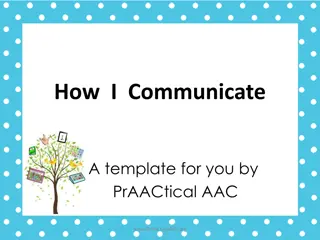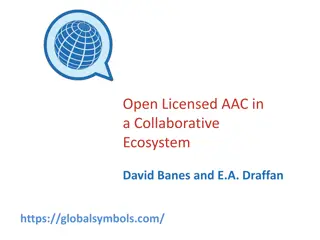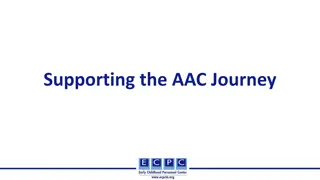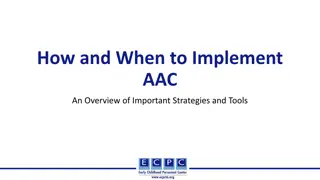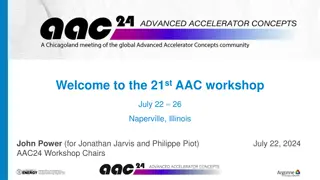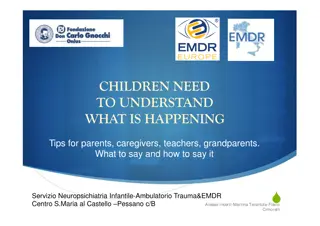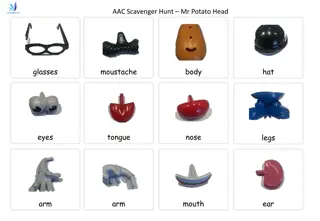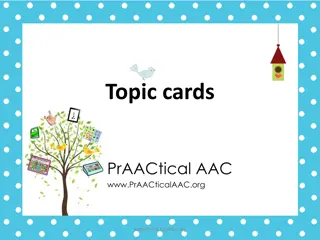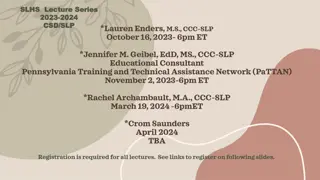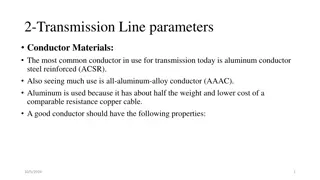Advocating Together for Academic Freedom - Importance and Principles
Advocating for academic freedom is crucial for the advancement of knowledge and quality education. The American Association of University Professors (AAUP) champions academic freedom, shared governance, and economic security for faculty members. The 1940 Joint AAUP/AAC&U Statement of Principles on A
4 views • 14 slides
Panel Discussion on Academic Freedom
Academic freedom is a crucial aspect of higher education, enabling teachers to innovate, explore diverse viewpoints, and facilitate critical thinking. Organizations like AAUP and AAC&U advocate for shared governance and economic security to uphold academic freedom. The 1940 joint statement highlight
4 views • 8 slides
Academic Freedom and Shared Governance in Higher Education
Academic Freedom and Shared Governance are foundational principles advocated by the American Association of University Professors (AAUP) to ensure educators have the freedom to explore, research, teach, and discuss without censorship. These principles empower educators to enhance student learning an
0 views • 9 slides
Advocating Together for Academic Freedom
Advocating for academic freedom and shared governance in universities, Brian L. Evans highlights the principles outlined in the 1940 Joint AAUP/AAC&U Statement. The American Association of University Professors (AAUP) and the American Association of Colleges and Universities (AAC&U) play crucial rol
1 views • 11 slides
Delaware Addiction Action Committee
Delaware Addiction Action Committee (AAC) is a collaborative effort aiming to address the addiction epidemic in Delaware by coordinating a comprehensive approach involving communities, providers, advocates, and governmental agencies. The committee, led by Co-Chairs Rebecca Walker, PhD, JD, MSN, DPH,
0 views • 6 slides
How I Communicate
This template from PrAACtical AAC aims to help individuals understand and respond to subtle or unconventional communication behaviors exhibited by learners. By detailing the behaviors, their meanings, and appropriate responses, caregivers and professionals can better support individuals in their com
0 views • 4 slides
Enhancing Accessible Communication Systems for Children with Disabilities
The content explores the significance of adopting open-licensed Augmentative and Alternative Communication (AAC) solutions in fostering early inclusion for children with communication-related disabilities. It highlights the challenges faced in developing technology-based solutions and the need to en
0 views • 13 slides
Supporting the AAC Journey: A Specialist's Perspective
Although conventional communication may not be present, recognizing different signals is crucial in shaping functional communicative behaviors. Specialists play a vital role in enhancing language potential through AAC, impacting future language development. Using aided language modeling and fosterin
0 views • 7 slides
Strategies and Tools for Implementing AAC Effectively
Explore important strategies and tools for implementing Augmentative and Alternative Communication (AAC), focusing on understanding core and fringe vocabulary, fostering language development, and incorporating interactive phrases. Learn how AAC supports language skills and provides alternative acces
0 views • 15 slides
Advanced Accelerator Concepts Workshop Highlights and Vision
The 21st AAC workshop held in Naperville, Illinois, showcased research on advanced accelerator physics and engineering. Key themes included developing cost-effective facilities for high-energy physics and photon science, as well as compact facilities for industrial, medical, and security application
0 views • 10 slides
Understanding Activity Address Codes (AAC) for Tribal Organizations
This content delves into the significance of Activity Address Codes (AAC) for Tribal Organizations, explaining their unique codes, application process, and authorized users. It further explores the role of AAC in obtaining excess federal property, accessing supply sources, and the various GSA progra
0 views • 26 slides
Helping Children Understand What is Happening: Tips for Parents, Caregivers, and Teachers
Parents, caregivers, teachers, and grandparents can help children understand the current situation using simple language and visual aids. It's important to explain complex topics like the coronavirus outbreak in a way that children can comprehend. Use AAC symbols and honest yet reassuring language t
0 views • 20 slides
AAC Scavenger Hunt Mr. Potato Head and The Garden Exploration
Embark on a fun scavenger hunt with Mr. Potato Head in various scenes like the garden. Find and assemble body parts like glasses, moustache, eyes, tongue, nose, arms, legs, and more to complete the playful search. Enjoy the interactive adventure with surprising twists and engaging challenges.
0 views • 9 slides
PrAACtical AAC Topic Cards for Improved Communication
Using the PrAACtical AAC Topic Cards designed by www.PrAACticalAAC.org can help individuals with unclear speech to indicate the topic of their message before communicating the actual content. These cards assist in conveying intent effectively and enhancing communication. The cards cover a range of c
0 views • 10 slides
Lecture Series on Speech-Language Pathology and Audiology 2023-2024
Discover a series of engaging lectures featuring notable speakers in the field of Speech-Language Pathology and Audiology. Topics include equity in AAC, family engagement, trauma-informed care, and more. Register in advance to secure your spot for these informative sessions scheduled between October
0 views • 5 slides
Understanding Value Rubrics for Comprehensive Program Assessment
Explore the use of VALUE rubrics for assessing program outcomes, creating aligned assignments, collecting student work effectively, and improving student skills. Learn about AAC&U's 15 VALUE rubrics and their applications in course and program evaluation. Discover how to define performance level
0 views • 24 slides
Types of Conductors in Transmission Lines
Aluminum conductors, such as AAC, AAAC, ACSR, and ACAR, are commonly used in transmission lines due to their high conductivity, tensile strength, light weight, and resistance to corrosion. AAC is known for its good conductivity but limited strength, while AAAC offers better mechanical strength and c
0 views • 17 slides
Cognitive Passive Estimation of Available Bandwidth in Overlapped IEEE 802.11 WiFi WLANs
Efficient bandwidth estimation is crucial for network management and QoS applications, with cognitive passive methods offering insights without additional traffic loads. This research explores the impact of control messaging overhead, network topology, channel usage, hidden/exposed terminals, and pa
0 views • 13 slides





